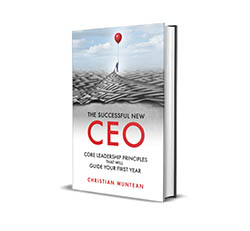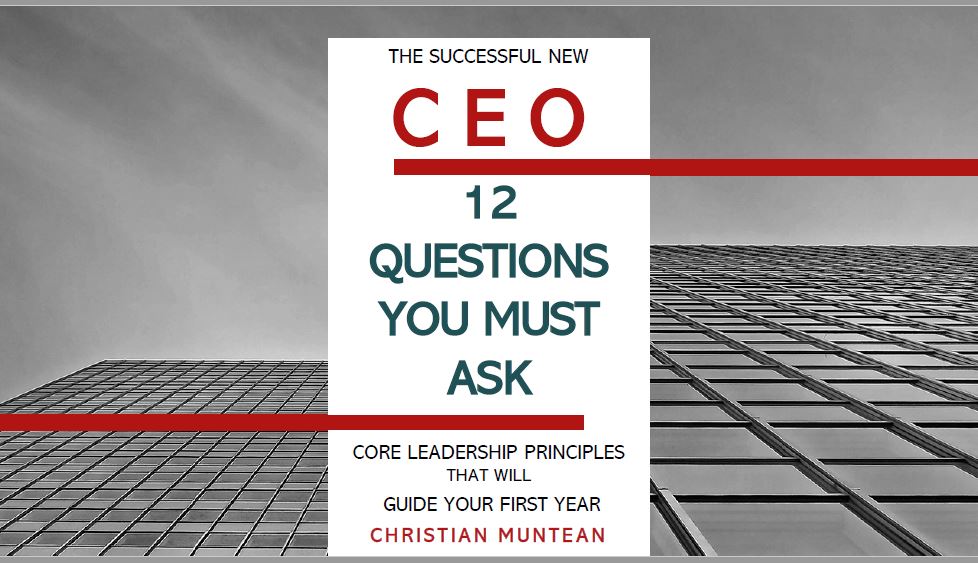A Short List of Common Ways a Room Full of Smart People Do Dumb Things

Silicon Valley Bank, Signature Bank, FTX, Terra…All financial services companies that attracted the best and brightest – as executives and clients.
All of which have spectacularly melted down. Because smart people made dumb decisions. And other smart people saw it happening and did nothing.
I Love Smart People
One of my favorite aspects of my job is that I spend time with so many smart people. I spend lots of time with boards, executive teams, partners, or technical leaders. People who are creative and insightful. People who find or create solutions to complex problems. People who are curious, inventive, and entrepreneurial.
It’s a gift. I get to spend my time with people who know much more than I do. People do all kinds of things I can’t. Just being around them expands my perspective and fuels my growth.
But Rooms Full of Smart People Don’t Always Make Smart Decisions
It’s easy to think that, “If we can get enough big brains together, we’ll solve the problems.”
Unfortunately, big brains often create as many problems as they solve. Arguably, the biggest problems we face in the world have been created or exacerbated by people with big brains.
Being intelligent and making good decisions are not the same thing. This dynamic is only magnified when there is a room full of intelligent people.
A Short List of Common Ways a Room Full of Smart People Do Dumb Things:
- Smart people are afraid of being dumb: Smart people are afraid of asking dumb questions. They are afraid of demonstrating that they don’t know or understand something.
Instead: Ask questions. Request that people explain the acronyms or define their words or lay out their logic. Chances are high that you aren’t the only one who didn’t understand. But even if you are, make sure you do understand. Especially if you are making decisions off of what was just said.
- Smart people don’t always understand what they are saying: If you can’t explain it simply, you probably don’t understand it. Smart people often bury themselves in jargon and techno-speak to be safe, lazy, impatient, or to simply signal superiority. This is as opposed to figuring out how to be understood by their audience.
Instead: Embrace the intellectual exercise of finding simple ways to explain complex things. It’s one reason I make heavy use of analogies and metaphors.
- Smart people can move too fast: Smart people often seek expediency. They can be impatient. So, they take shortcuts. They don’t read the instructions. They skip steps. It creates problems.
Instead: Be willing to slow down. Differentiate your need for action or closure from the issue’s need for thought or due process.
- Smart people get crippled by analysis paralysis: The opposite of the problem of expediency. Smart people can get so lost in trying to get the right or best answer that they never act at all. Analysis paralysis – the search for perfect – is damaging. I’ve never encountered an organization that benefitted from it.
Instead: “Success loves speed,” says Craig Ballantyne. Learn to quickly recognize and accept what is “good enough”.
- Smart people confuse what works on paper for what works in the real world: Don’t get lost in your spreadsheets or smart board scribbles. As Mike Tyson says, “Everyone has a plan until you get punched in the mouth.”
Instead: Your ideas are only as good as their ability to survive “in the wild.” Get your ideas out there. Let them be tested by others and by life. It’ll make them stronger.
- Smart people don’t question their own assumptions: Smart people make assumptions. They jump to conclusions. They become married to pet theories. They are just better, faster, and more involved in their ability to support confirmation bias.
Instead: Learn to recognize assumptions. (When might I mistakenly believe I know what someone else is thinking about something?) Learn to invite dissent and debate.
- Smart people are too busy: Many smart people are just too busy doing too many smart people things. They serve on too many boards. They run too many teams. They have too many projects going on. So, they never give any one thing the time and attention it needs. They hope that the other smart people in the room are putting in more time and attention than they are.
Instead: Stop it. Being busy isn’t being effective.
- Smart people confuse being clever for having character: Smart people get so involved in how ingenious something is (or they are) that they forget to consider if it is ethically or morally right.
Instead: Values matter. In the long run hubris, greed, impatience, revenge…these have brought down more organizations and leaders than simple technical errors. Be ethical. Do the right thing.
Take good care,
Christian
Did you miss it? Catch my interview on the rebroadcast of the Shrimp Tank podcast, the #1 Entrepreneur podcast in America, here: http://bit.ly/40aG3ZO
𝗧𝗵𝗲 𝗕𝗲𝘀𝘁 𝗧𝗶𝗺𝗲 𝘁𝗼 𝗖𝗿𝗲𝗮𝘁𝗲 𝗔𝗻 𝗘𝗺𝗲𝗿𝗴𝗲𝗻𝗰𝘆 𝗦𝘂𝗰𝗰𝗲𝘀𝘀𝗶𝗼𝗻 𝗣𝗹𝗮𝗻 𝗶𝘀 𝘽𝙚𝙛𝙤𝙧𝙚 𝗬𝗼𝘂 𝗡𝗲𝗲𝗱 𝗜𝘁.
Be prepared for a smooth transition in the event of an unplanned emergency succession. My guide will show you step-by-step how to devise your own plan.
Free Leadership Resources
Whether you are a new CEO, thinking of succession or exit, or wanting to strengthen your leadership and your team, I’ve got resources to help:
Enhancing your leadership skills
Are you interested in learning more about becoming a successful CEO? If so, get a free copy of my book The Successful New CEO. Not a new CEO? I’ve been told by “old hands” that they felt any CEO should read this. So, click here to get your copy today.
by “old hands” that they felt any CEO should read this. So, click here to get your copy today.
There are 𝟭𝟮 𝗰𝗿𝗶𝘁𝗶𝗰𝗮𝗹 𝗾𝘂𝗲𝘀𝘁𝗶𝗼𝗻𝘀 to ask before accepting a new CEO position. Do you know what they are? Instantly download my free e-book here.
Let’s connect.
I’m passionate about helping leaders to create workplaces they love going to and increasing the value of the services they offer. My results-oriented approach is tailored to each client’s specific situation and needs. As a leadership coach, I have developed a wealth of resources to help you and your team grow and become stronger.
Weekly Newsletter – sign up to receive my weekly articles addressing critical leadership challenges and issues.
The Leadership Coach Podcast – In my podcast, we explore effective, high-impact, and enjoyable leadership. Subscribe.
Find the value of your company with my free assessment tool: The Value Builder System
The Value Builder System™ is a 13-minute online questionnaire that evaluates your business on the eight factors that contribute more to its attractiveness and value. These factors are scored on a scale of 1-100. Businesses that score over 80 are likely to command 70%-100% higher value than others.
Opportunities
Executive and Leadership Coaching: Do you feel overwhelmed? Are you not getting the results you expect from the effort you are putting in? Do you find yourself facing similar challenges time and time again? Would you like to change specific ways of relating or reacting? If you would like to experience predictable, measurable growth Contact me.
Profitable Exit Strategy Workshop: Are you a business owner or partner? Over 55? Starting to think about exiting your business or active management in the next 3-5 years?
- Curious about what your business might be worth?
- Would you like to discover the specific steps you need to take to increase its value and become highly attractive to a buyer?
- Are you planning on handing it over to family or employees and you want to ensure long-term success?
If so, contact me now
Article Categories
Popular articles

Download my free 10-page eBook:
How To Accomplish More Without Doing More:
Eight Proven Strategies To Change Your Life
Discover how to save eight hours during your workweek-even if you're too busy to even think about it. The resource every maxed out executive needs.

